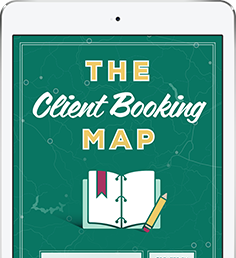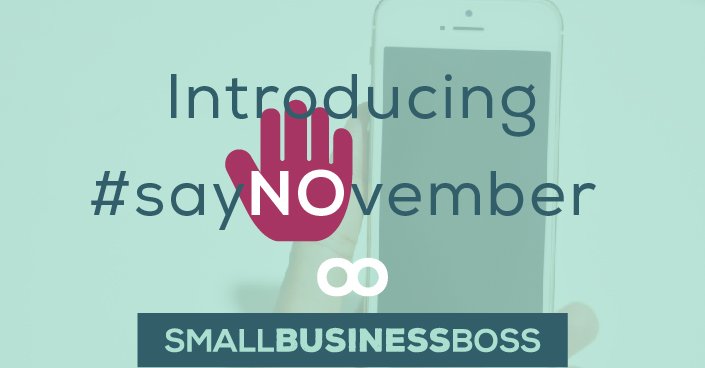When people talk about starting or running a business, they tend to focus on the good stuff. The fun stuff. But we all know that running a business isn’t all glitz, glamour and jazz hands.
It’s easier to paint this picture of how amazing it is than to ‘fess up and talk about the icky stuff. Which means we can feel alone, or like the only one facing the struggles of running a business.
One of the biggest struggles in a services business is client situations that are annoying, tough, stressful, and sometimes downright breakdown-inducing.
All of these are 100% normal and it will happen to you at some point. The secret is finding ways to eliminate the opportunities for these bad client situations to happen as much as possible.
Now, before we dive into the warning signs of “bad” clients, let’s get down to brass tacks. We’ve definitely faced some of these situations and others are ones we’ve heard about from business friends and our own clients. Confidentiality is important to us, so details may have been changed.
We’d also like to emphasize that “bad” doesn’t necessarily mean the clients themselves are bad. The just may be a bad fit, bad timing, bad communication or other factors that lead to things getting rough.
With that said, here are 10 warning signs of “bad” clients and some ideas on how to deal with them:
They Are Desperate
If there’s one client you should run from, it’s a potential client that’s desperate. This client is going to show up in different ways, but anyone who’s looking for you to wave a magic wand and fix things for them is a major red flag.
Someone should be hiring you to help them build on the foundation they already have and not be throwing their last $5k your way. In my experience, these types of clients are looking for you to turn things around and may be suffering from delusions or wildly misaligned expectations.
A desperate client is always going to be hard to please and pinching pennies, so watch for signs of someone who’s “tried everything” or just needs “this one thing to work”.
You Don’t Respect Them or Their Business
We’re all going to have different values and a line in the sand in terms of what is and what isn’t acceptable when it comes to who we work with. You need to know where that is for you and once you do – never, never breach it.
Life is too short, and no amount of money will make a client you don’t respect okay. Trust me, I’ve had clients over the years that literally made me roll my eyes with what they were doing and I should have held my ground and said no. Saying no is hard to do, but dignity and respect are way more important.
Do your homework before you even get on a consult call to ensure that their business is something you’re excited to work on, and if you’re unsure ask clarifying questions on your consult call to see if it’s a fit or not.
Asking You for Special Treatment
Warning, warning…clients who ask for special treatment in the new business phase or at the onset of your relationship are usually going to be a major pain in the butt.
This may be asking for special payment terms, wanting to haggle on pricing or making demands that go outside of the scope of work. Whatever it is, you need to hold firm to your standard operating procedures so that things are consistent. And if you don’t have specific terms in place for payments, pricing, or even when you’ll get started, you need to outline these and then articulate them at the proposal stage so there’s no confusion.
They Want You to Convince Them
This is one of my favorites, as it’s a complete trigger for me on multiple levels, and I’m sure many of you have faced this.
You’re on a consult call, and the person wants you to convince them that you’re the right person or they start pushing really hard for you to impress them.
This one is a red flag on several levels. First of all, it’s often a sign that someone didn’t do their homework before they requested a consult with me, which doesn’t bode well for our working relationship.
Next, I consider a consult call to be about determining a mutual fit, and not the act of me convincing someone. Yes, I do sell my services to people, but if you’re not convinced by the results I’ve already shared, and what you’ve seen on my website, then no amount of tap dancing is likely going to do the job.
They Trash Talk Other Service Providers
Nothing, and I mean nothing makes me squirm more than a would-be client that trash talks other service providers. This is more than a red flag, it’s a marquee with flashing lights saying “avoid this person”.
Most of the time, when someone is willing to trash talk another service provider to you, someone they just met, it’s an indicator of a bigger problem. This type of client is either out of touch with reality, desperate or simply gossipy. None of which bode well for you being able to help them.
There are exceptions to this rule, as sometimes people do get burned and are reticent to trust someone new. For me, it’s all about how they share this information. Do they name the person? Is it designed to be context or more gossipy in nature? There’s a big difference between needing to be reassured and them needing to blame someone.
You Flat Out Disagree, All the Time
The first few months of working with a new client are definitely a challenge as you both find your footing. But nothing is more complicated than when you find yourself often disagreeing with your client or they simply disregard your counsel.
Are you going to agree with your client all the time? No. But the problem comes when there’s a pattern of not being on the same page or them going against your best counsel.
In my many, many years of consulting experience, this is a bigger problem waiting to happen, as it’s very challenging for you to ensure a particular outcome or result when they don’t follow the plan. They hire you as a professional or expert, and if they constantly made decisions counter to that, you’re unable to do what you were hired to do.
Watch for this one as it will creep up on you, but if you don’t address it with your client, it is likely to result in larger issues over time. And it’s okay to wrap things up with this client as you’re likely not the best fit for what they need at this point in time.
They Aren’t Happy with Results
Sometimes things don’t go according to plan with clients, or certain conditions exist that prevent you from producing expected results. It happens to all of us, especially as for the work most of us do there are so many variables.
But what happens next determines if your client is a keeper or not.
Is the tone of the conversation about results to look at what happened and how to improve next time, or are the accusations flying? The second a client starts playing the blame game, watch out, as that’s not a sign of a working relationship built on trust.
Yes, they’re allowed to be unhappy or frustrated, but if they are directing that at you in an unprofessional manner, you don’t need to just take it. You can stand up for yourself, articulate what worked, what didn’t and what you can change in the future. If that’s not good enough, they aren’t a good enough client for you to continue serving.
Your Boundaries are Constantly Being Pushed
If you have lived through parenting a toddler (or been around one for any length of time) you know how important rules and routine are. The same goes for client work. Clearly established and communicated boundaries teach our clients how to best work with us.
So, first things first. If you find boundaries are always being pushed by clients, you may need to do a better job of articulating and reinforcing them. It may be your work hours, response times, turn around times for tasks or even expected results. It’s up to us to but them in place and consistently apply them.
But what if you have a client that knows your boundaries and is still constantly pushing them? Even when you put your foot down?
That, my friends, is a bad client. That’s a client that doesn’t respect you or the boundaries you have in place and will continue to push them as long as you let them.
There are many options for how you deal with this, but take the opportunity to reset to see if they need a reminder. You can say things like “I wanted to remind you that tasks require a 48 hour turnaround time.” or “My office hours are 9 a.m. to 5 p.m. ET so if you contact me outside of those hours, please don’t expect a reply.” You can be firm and friendly to see if they just need to have boundaries re-established.
Sometimes that’s just not going to be good enough and your client give zero f&cks about your boundaries. And that’s a sign it’s time for them to go.
Payment is Always Late
Money is energy and when a client pays you late it throws off the power dynamic. For a long time I’d get really worked up when payment was late and it took a long time to figure out that when payment was late, it was saying my work wasn’t good enough on some level. (Yes, I may have been reading too much into it.)
Once I figured that out, I changed how I approach payments to give myself back some power. When I’d do the work and then bill clients for it at month end, I’d find that I was waiting 30 more days for payment.
Asking for payment upfront helped ensure that I wasn’t doing work that was uncompensated or I wasn’t getting stiffed. (Always a risk in the online world.) You may choose to do things differently with shorter payment terms or partial payments, but the goal should be for you to stop payment problems before they can happen.
Also, if you’re in a situation where billing upon completion of the project or the end of the month is common, consider adding late payment fees past a certain point as an incentive to pay on time.
Clients that chronically pay late aren’t good clients, and I recommend working with them to see how it can be fixed so you’re paid in a timely manner. Also, if you’re in a situation where you do ongoing work and a client hasn’t paid, you can stop work to force payment to happen.
They Make It Personal
One of my favorite things about working with clients is building a personal relationship with them, but sometimes that personal relationship goes too far.
The personal is professional, when you run a services business, but there are also times when that line is crossed.
Case in point, the time I had a client call me during dinner and cuss me out because he didn’t like a recommendation I’d made to the director of marketing. Disagreeing with my recommendation is one thing, but the second he started yelling at me and calling me a dumb bitch among other things, it was personal.
I resigned that client within a matter of minutes of hanging up that call because that type of behavior was completely unacceptable.
But sometimes it’s not going to be that cut and dry. Things like making business situations personal or treating you like their BFF or therapist aren’t good for anyone.
Even if you love that client, you’re in the danger zone and you need to find your way to have firmer boundaries. A professional relationship that becomes way too personal is always hard to navigate when things get rough, so course correcting while you can is worth the time and effort.
Of course, each of these situations are going to be unique to your business so consider these warning signs and possible fixes as a starting point. And if you’re in the business of working with clients as a services business, grab a copy of the Client Booking Map to help you find more of your ideal client.
[embed_popupally_pro popup_id=”9″]





